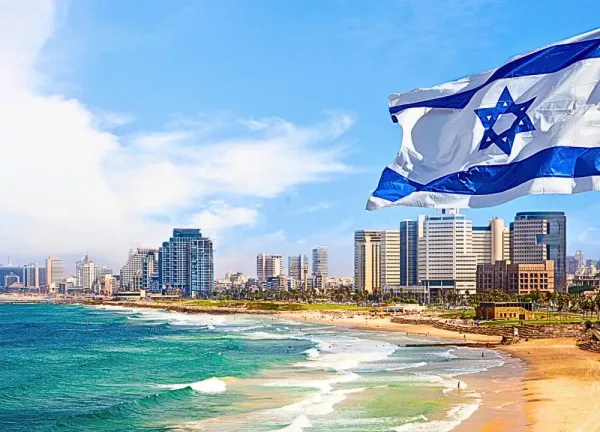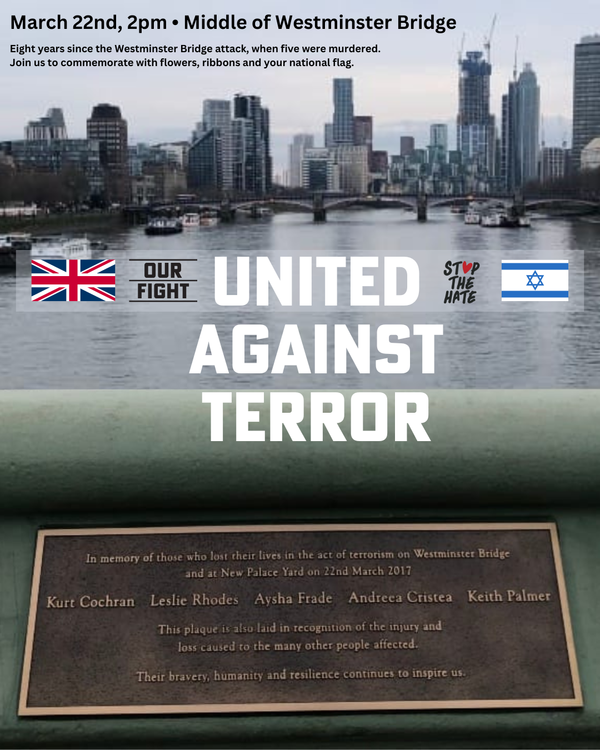Sessions Now Online for Remaking the Promise of Never Again
If the Holocaust shows merely a dark place where 'prejudice' can lead, then we have missed its bleak forewarning. Anti-Semitism is the only idea capable of engulfing a continent in a frenzy of slaughter; the Holocaust is the stark proof. All sessions from last week's symposium are now online.

During the summer of 1944, in less than two months, 437,000 Hungarian Jews were packed onto trains bound for Auschwitz, almost all of whom would be murdered in the gas chambers. This single fact alone should be enough for us to remember the Holocaust every day, not just once a year.
Yet the enormity of the Holocaust seems little known these days. If it was, then journalists and trade unionists, Corbynites and UN rapporteurs, students and ICC prosecutors would not use the word 'genocide' to describe the war in Gaza.
If the enormity were known, then on Holocaust Memorial Day, activists would not have carried placards saying that Israelis are the new Nazis. 'Jews for Palestine' would not have talked of Gaza in the same breath as Auschwitz. And the Palestine Solidarity Campaign would not have stood in London's Parliament Square demanding the day be renamed to 'Genocide Memorial Day'—a day on which they want to remember everyone except the Jews.
And if the Holocaust's enormity were truly known, journalists would not solemnly broadcast on the 80th anniversary of the liberation of Auschwitz that we should remember the murder of six million 'people'; they would instead be screaming and reporting and making documentaries about the attempt to exterminate all the Jews of Europe.
Six million Jews were murdered, ITV.
Six.
Million.
Jews.
It's because six million Jews are being written out of the history of the Holocaust, because the 437,000 taken from Budapest to Auschwitz are being written out of the history of the Holocaust— because history itself is being written out of the history of the Holocaust—that Our Fight has been campaigning for over a year to challenge the redefinition of the word 'genocide' and the shocking de-Judification of the Holocaust.
We have taken our banners to the streets and declared 'There is no Genocide in Gaza'. We organised a session at last year's Battle of Ideas conference on Israel, Genocide, and the Law with Natasha Hausdorff, Jonathan Sacerdoti, and Lesley Klaff. And just over a week ago we hosted the powerful symposium Remaking the Promise of Never Again. (See below for full details of how to watch the sessions online.)
Our goal is simple but it is imperative; if the Holocaust is to serve as a lesson to humanity, then we must understand it. If we imagine that it illustrates little more than a dark place where any prejudice can lead, then we have missed its bleak forewarning. Instead, the lesson we must learn is that anti-Semitism is the only idea yet devised that can engulf a continent in a frenzy of slaughter—and the Holocaust is the stark proof of that.
We will continue to challenge the dishonest use of the word 'genocide'. We will do so on the streets, in discussions, in articles, at conferences. And in April we will take a delegation of Brits and non-Jews to Israel for Yom HaShoah, to stand in solidarity with Jews against both the global rise in anti-Semitism, and the 'forgetting' of the significance of this singular event.
If you would like to help us with the pushback, then please get in touch. Invite an Our Fight speaker, host an event, join a counter-protest, make a donation, become a supporter.
Eighty years on from the liberation of Auschwitz, we need it all.
In the meantime, please watch and share the sessions in this symposium.
Remaking the Promise of Never Again
The videos for all of the sessions from our symposium on February 9th, 2025 are available in our YouTube channel (link below).
The afternoon began with opening remarks from Our Fight founder Mark Birbeck explaining the need for the symposium.
This was followed by a lecture from journalist and commentator Jonathan Sacerdoti on the theme of Anti-Semitism: the Holocaust and Genocide. Daniel Ben-Ami—also a journalist, and a prolific writer on anti-Semitism—responded to Jonathan's powerful speech, before the audience added their questions and contributions.
This opening session was followed by a panel on Have the Arts Failed the Holocaust?, which discussed the representation of the Holocaust in film, theatre, literature and sculpture, as well as the use of public spaces and museums to memorialise and educate.
Poet Jeremy Robson began this session by reading his poem VIGIL, after which we heard the thoughts of sculptor Flor Kent—known for her work on Kindertransport memorials—actor and playwright Jeremy Kareken (currently appearing in The Value of Names) and director of the National Holocaust Centre and Museum, Marc Cave.
The final plenary was a typically powerful conversation with Spiked's chief political writer Brendan O'Neill, examining the rise of anti-Semitism—particularly on the left—the need to understand and explain the anti-Semitic core to the Holocaust, and the responsibility of non-Jews to take on this challenge.
We'd like to thank our partners British Friends of Israel and Spiked for working with us on this symposium. And we'd also like to thank The Blair Partnership for kindly providing wine and bagels for our attendees.
All of the sessions are now online in the Our Fight YouTube channel.



